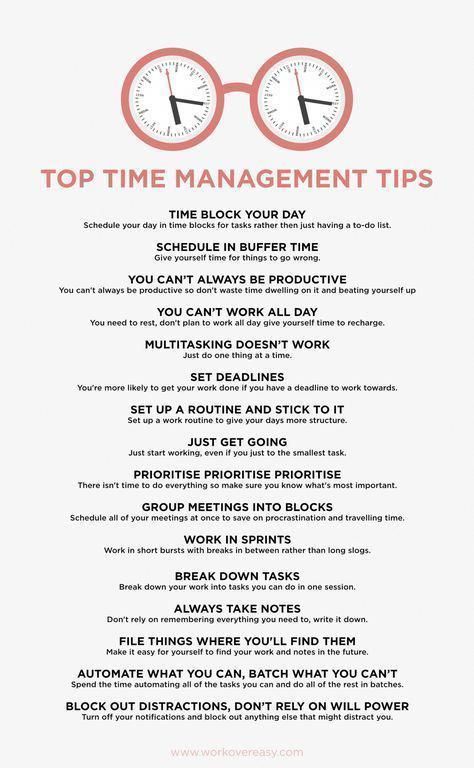Time is an invaluable commodity that we all possess, but effective time management is a skill that’s rare among many individuals. We all have the same 24 hours in a day, but some people seem to accomplish more than others. The difference is that they know how to manage their time effectively. If you’re looking to avoid the hustle and bustle of life, learn how to master your time with these effective time management skills & practices.
Setting Goals
The first step to effective time management is setting goals. When you set goals, you give yourself a target or an objective to aim for. Break down your goals into smaller and more achievable tasks that can be accomplished within a specific timeline. This will give you a sense of accomplishment and motivation to move on to the next tasks.
Prioritizing Tasks
Not all tasks are equally important. Prioritizing tasks enables you to understand what tasks are worth your time and which ones aren’t. Prioritizing tasks require you to understand the level of importance of each task you have to carry out, and this is crucial when organizing your activities throughout the day, week or month.
Making a Schedule
Creating a schedule can be an incredibly useful way to manage your time. Scheduling should consider every aspect of your day, and planning specific blocks of time for each task you have to carry out. This helps you to visualize your tasks, plan tasks ahead of time, and avoid confusion and chaos during the day.
Eliminating Distractions
Every day we are bombarded with distractions, from social media platforms to emails and phone calls, that cause us to lose focus on our tasks. Eliminating these distractions is crucial to effective time management. Set specific time blocks to go through emails, turn off notifications that do not require immediate attention, and communicate to colleagues and friends that you will be busy during specific hours.
Taking Breaks
Taking breaks is not a waste of time, but rather is essential to effective time management. Breaks give your mind and body the chance to recharge, refocus and renew before taking on the next task. You can use this time to stretch, meditate, go for a walk, or simply relax and reflect on your activities.
Being Flexible
Flexibility is important, especially when things don’t go as planned. Instead of stressing about an uncompleted task or playing catch up, it’s important to be flexible and be willing to accommodate the changes that life throws our way.
Having an Accountability system
Having an accountability system in place can be very helpful for effective time management. This system can be a person or a method that helps you stay on track with your tasks and goals. For instance, you can keep a journal that records your activities throughout the day, or simply share your goals with friends or family who can follow up on your progress.
You might find these FREE courses useful
- Engineering Project Management: Scope, Time and Cost Management
- Strategic Career Self-Management
- Work Smarter, Not Harder: Time Management for Personal & Professional Productivity
- Free Time Management Tutorial – Effective Time Management for Employees
Learning to Say No
Learning to say no when necessary is important. Often, taking on an extra task or project can lead to overcommitment and subsequently, reduced quality of work. Effective time management requires you to understand your limitations and ensure that you do not take on more than you can handle.
In conclusion, effective time management is crucial for productivity, success, and personal growth. The above skills and practices can help you manage your time effectively, create balance in your life, and achieve your goals. Whether you are a student, entrepreneur, or employee in a demanding career, effective time management can mean the difference between mediocrity and excellence. With these skills, you will be on your way to mastering your time, achieving more and feeling accomplished along the way.


